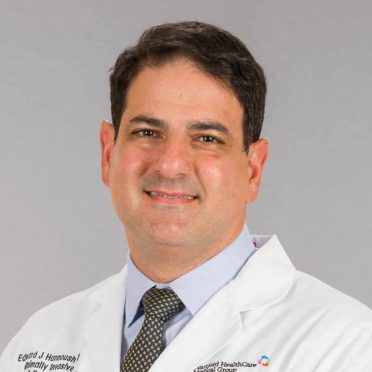When we have heartburn, there’s a whole list of usual suspects – from coffee to spicy food to an extra large meal.
But when heartburn lingers, it could be a sign of something more serious.
One possible culprit may surprise you – a hiatal hernia.
What is a hiatal hernia?
A hiatal hernia occurs when part of your stomach bulges through the muscles and into your chest cavity through a small opening in your diaphragm called the hiatus.
How can it cause heartburn?
If a hiatal hernia is small, there may be noticeable symptoms. But once it grows larger, it can start to cause issues in your digestive system.
“A large hiatal hernia can allow food and acid to back up into your esophagus, leading to heartburn. As the hernia grows, symptoms progress from heartburn to more serious,” says gastric surgeon Edward Hannoush, MD, of Hartford HealthCare’s Digestive Health Institute.
Symptoms of a hiatal hernia include:
- Heartburn
- Regurgitation of food or liquids into the mouth
- Backflow of stomach acid into the esophagus (acid reflux)
- Difficulty swallowing
- Chest or abdominal pain
- Feeling full soon after you eat
- Shortness of breath
- Vomiting of blood or passing of black stools, which may indicate gastrointestinal bleeding
When should I see a doctor?
Hiatal hernias are a rare occurrence, but if you have frequent heartburn, it may be time to see a gastroenterologist.
Your doctor may use a number of tests including an x-ray of your upper digestive system, or an upper endoscopy that examines the inside of your esophagus and stomach to check for inflammation.



